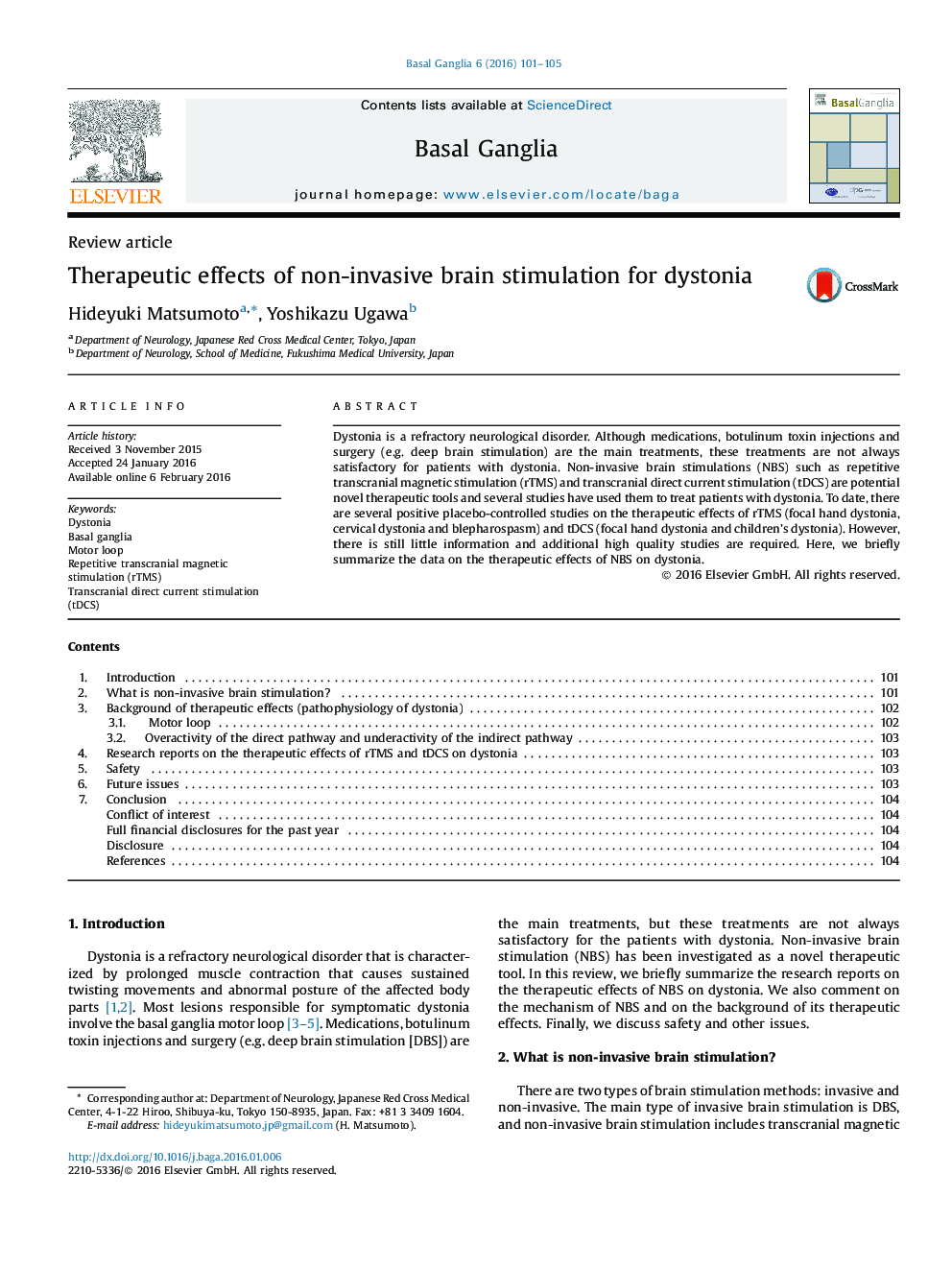| Article ID | Journal | Published Year | Pages | File Type |
|---|---|---|---|---|
| 3035981 | Basal Ganglia | 2016 | 5 Pages |
•Non-invasive brain stimulation may have a beneficial effect on patients with dystonia.•Several positive effects are reported, but the evidence quality is low.•Additional high quality studies are required.
Dystonia is a refractory neurological disorder. Although medications, botulinum toxin injections and surgery (e.g. deep brain stimulation) are the main treatments, these treatments are not always satisfactory for patients with dystonia. Non-invasive brain stimulations (NBS) such as repetitive transcranial magnetic stimulation (rTMS) and transcranial direct current stimulation (tDCS) are potential novel therapeutic tools and several studies have used them to treat patients with dystonia. To date, there are several positive placebo-controlled studies on the therapeutic effects of rTMS (focal hand dystonia, cervical dystonia and blepharospasm) and tDCS (focal hand dystonia and children’s dystonia). However, there is still little information and additional high quality studies are required. Here, we briefly summarize the data on the therapeutic effects of NBS on dystonia.
